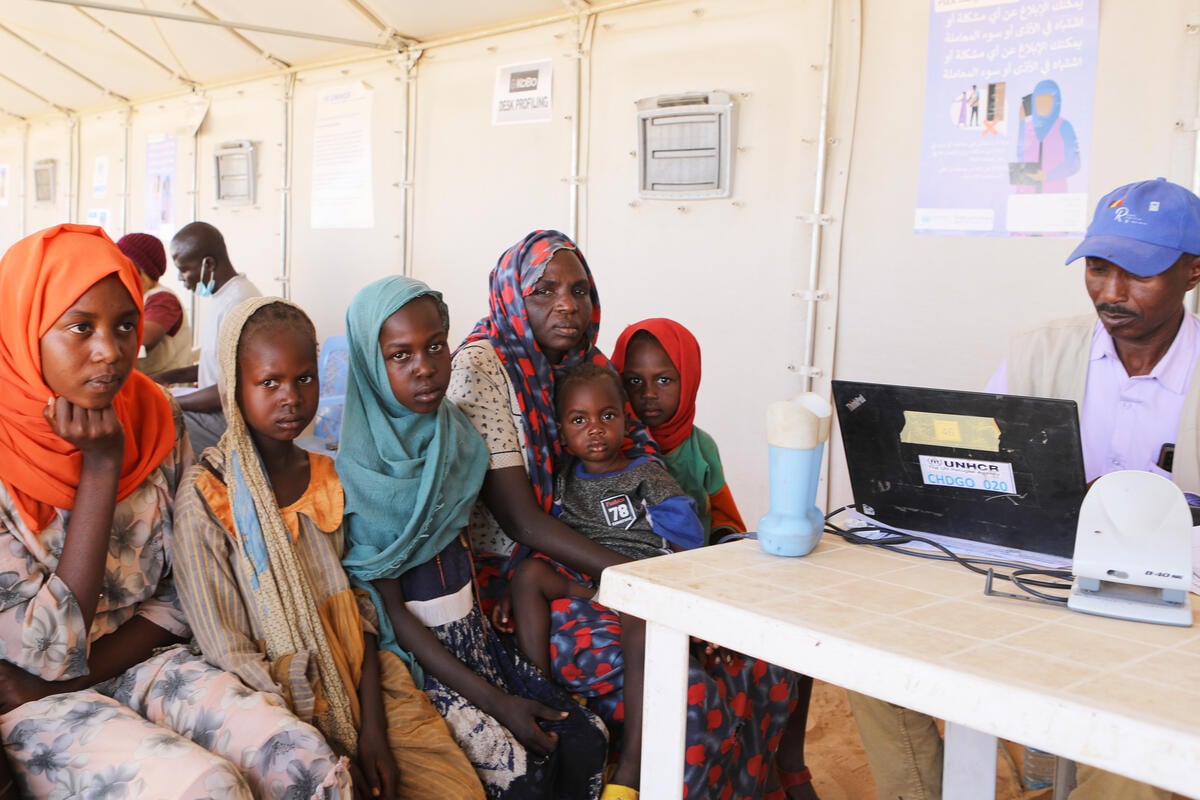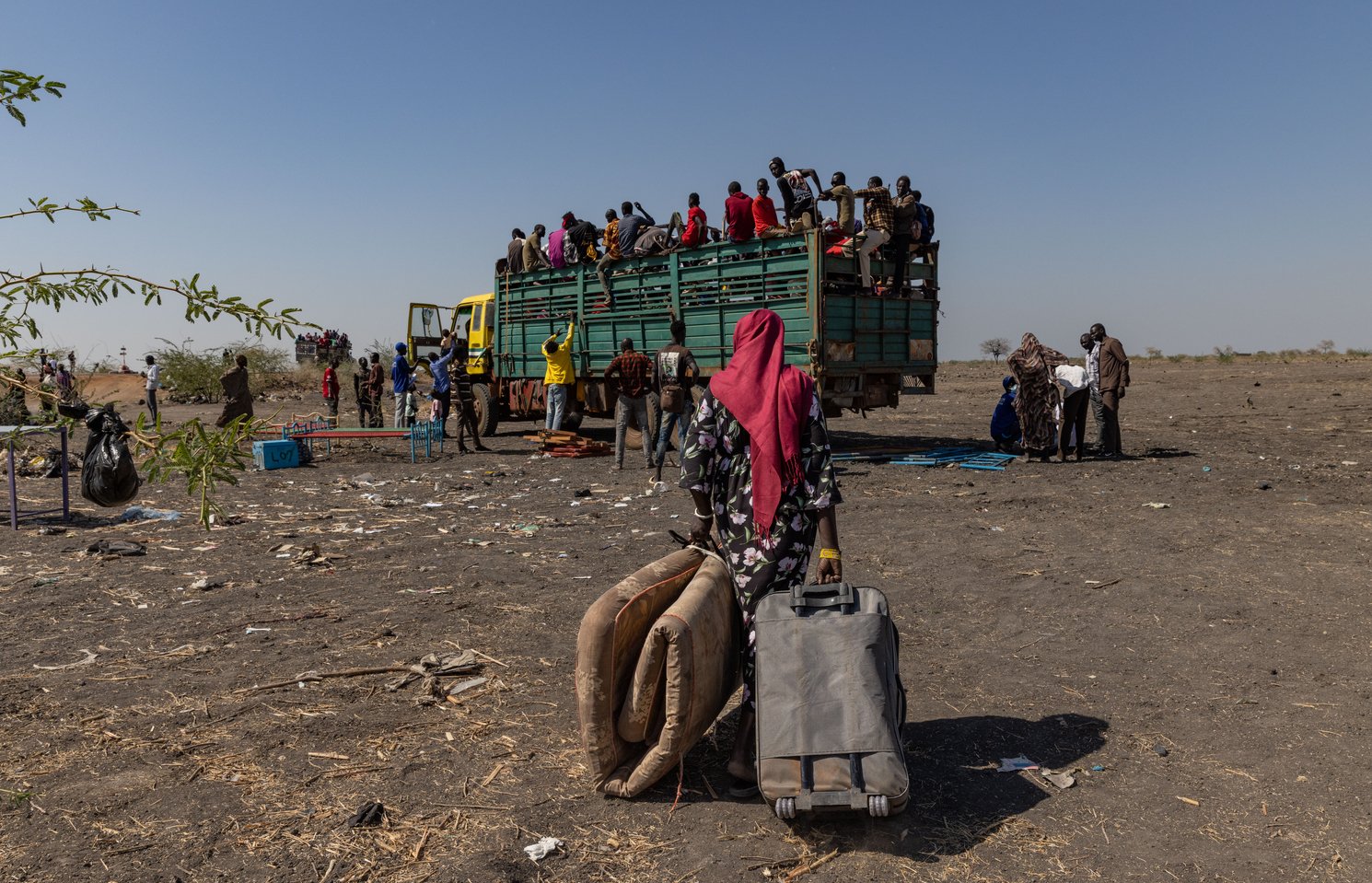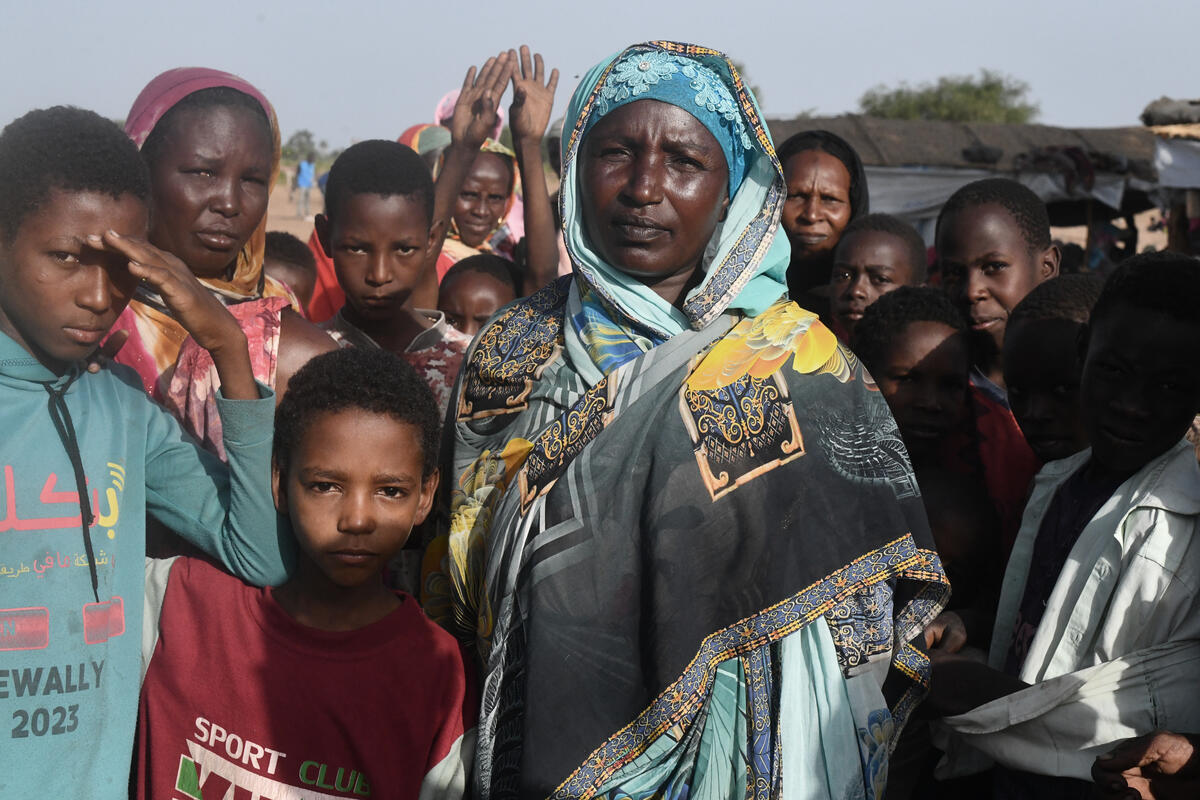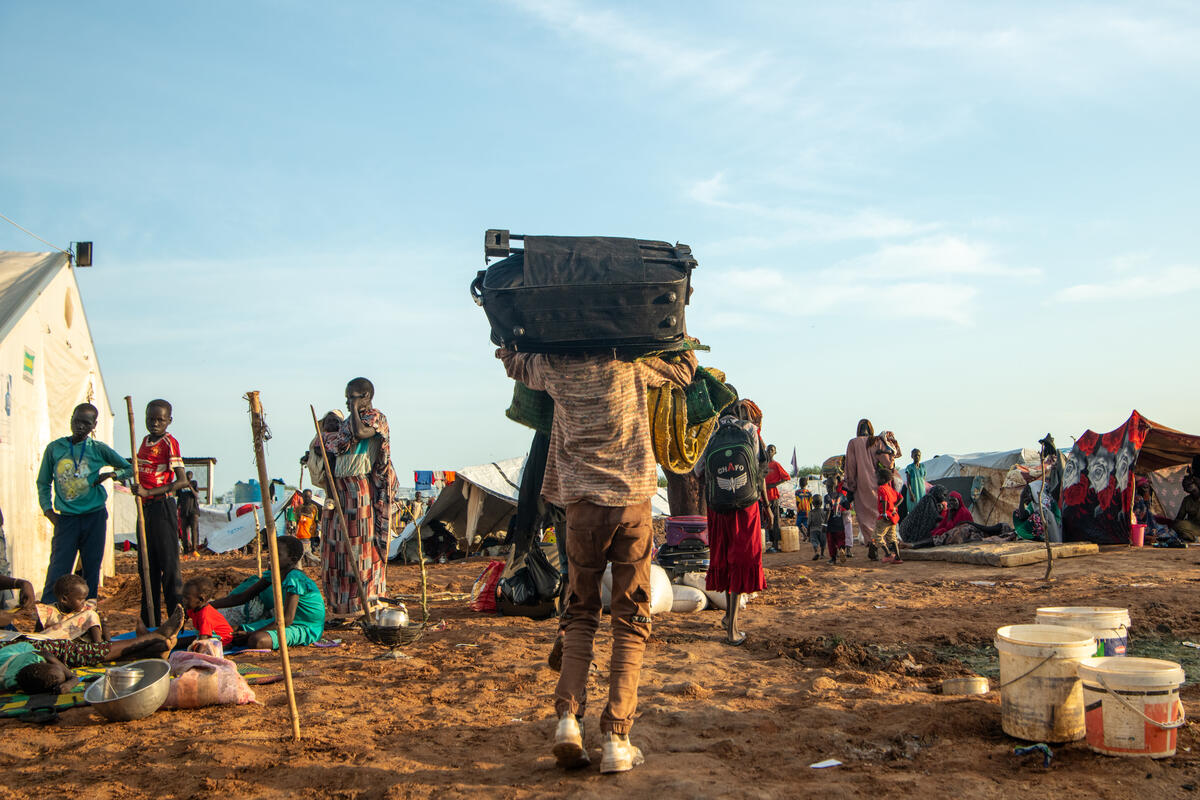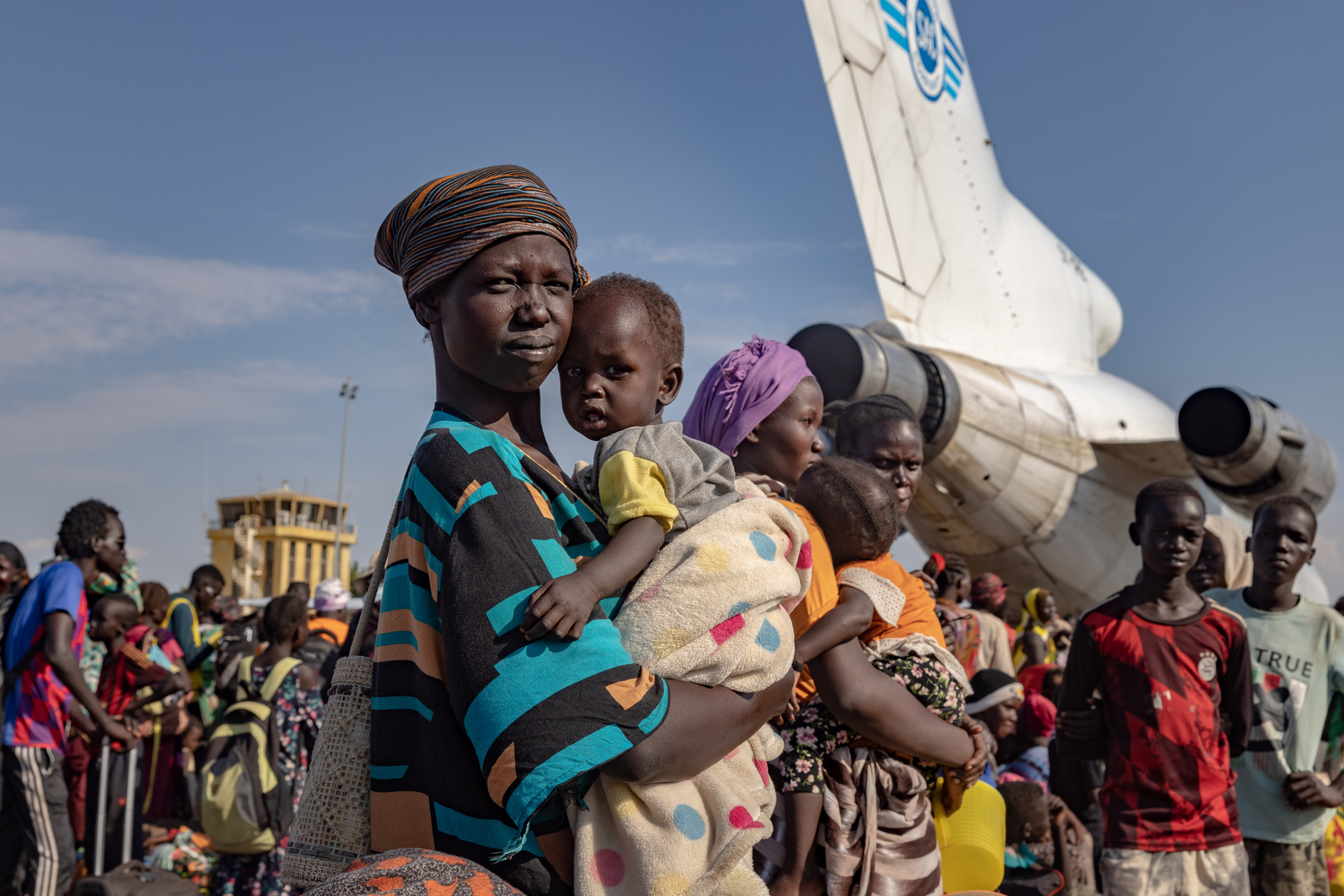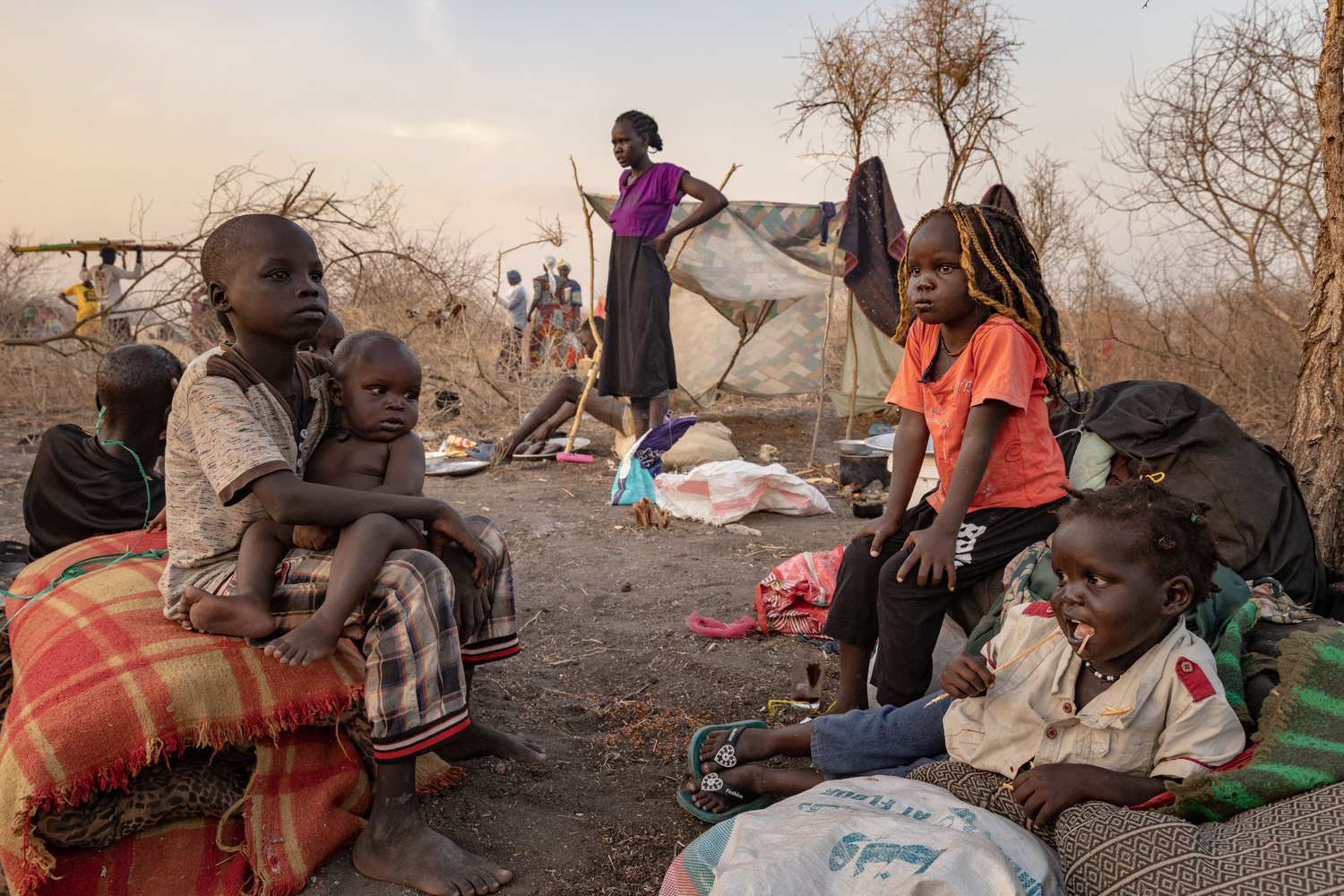Central African refugees start heading home with UNHCR help
Central African refugees start heading home with UNHCR help

BANGUI, Central African Republic, June 10 (UNHCR) - The UN refugee agency has started repatriating thousands of Central African refugees who, bolstered by a new government in their homeland, have decided to return after two years of exile in surrounding countries.
On Tuesday, a first group of 56 Central African refugees were flown home from Brazzaville, capital of the Republic of the Congo. Some 300 out of the 400 living in Brazzaville have registered for repatriation. Another 1,300 are hosted in camps in the country's north.
Monday saw a separate group of 275 Central African refugees heading homewards from Mole camp in Zongo, Equateur province, north-western Democratic Republic of the Congo (DRC). They were ferried across the Ubangui river to the Central African Republic's capital, Bangui, on board UNHCR-chartered boats.
At the end of the eight-day return operation in the DRC, nearly all of Mole camp's inhabitants are expected to have repatriated. More than 2,600 of the camp's 2,800 refugees have said they will return home this week.
The journey back marks the end of a two-year exile. In the wake of the failed coup of May 2001, tens of thousands of Central Africans had sought refuge in the DRC. Many went back subsequently, but as most of Mole camp's refugees are relatives of the mutineers, they feared government persecution if they returned home.
However, since mid-March this year, when former army chief of staff François Bozizé captured Bangui in a coup d'état, most of Mole's refugees have been eager to go back to the Central African Republic.
At the port in Bangui, the first returnees from the DRC seem hopeful as they unload their belongings, which include some goats. Gladys Biafendo, 23, hopes to resume her studies, which were interrupted when her husband, a sergeant, fled to Zongo after the 2001 coup. At that time, she was just a year shy of graduating from high school.
"Now I have to continue school and my husband has to return to work," she smiles, coaxing her two-month-old baby while waiting for UNHCR to take her family home to a district near the capital.
But repatriation is only a first step in the long road to recovery. Most of the returnees are going back to destroyed homes and will need assistance to reintegrate.
Arriving back in Bangui, Brigitte Kabouangba tries desperately to pacify her young daughter, who is crying. Kabouangba's husband died in Mole camp a few days ago, leaving her to fend for herself and her eight children. Her biggest concern is that she has no documents to claim her late husband's government pension: all their documents were destroyed or lost after their house was looted in May 2001.
To help the returnees restart their lives, UNHCR provides each family with a reintegration package that includes kitchen sets, jerry cans, blankets and mats distributed in the camp prior to their departure. Refugee families also receive seeds, fish nets and agricultural tools, as well as three-month food rations from the UN World Food Programme (WFP) upon their return.

